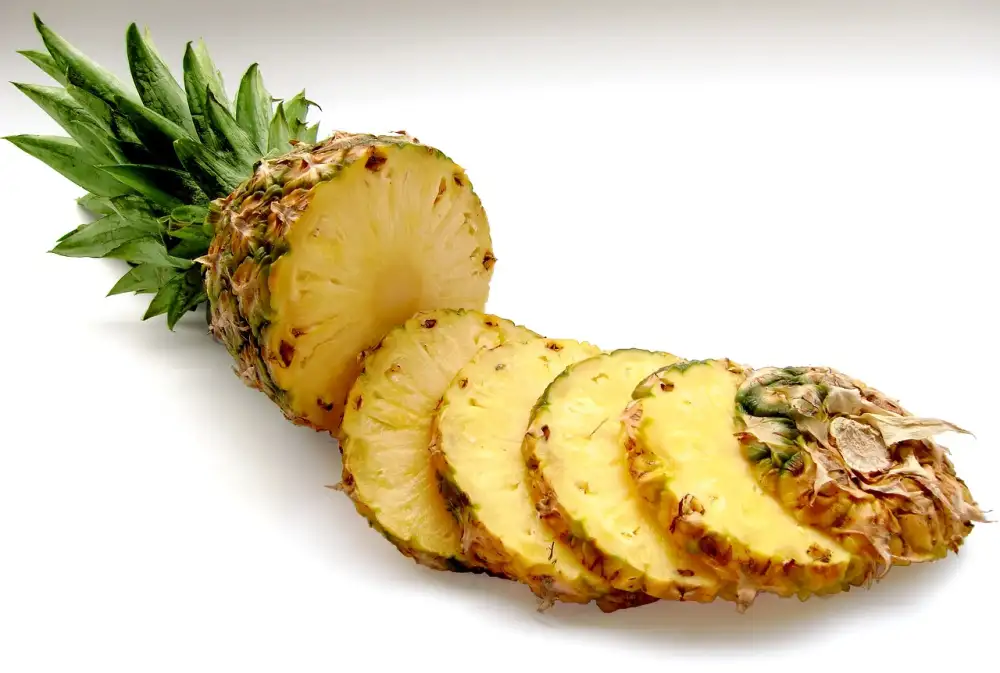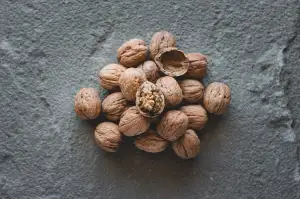Unveiling the Mystery: Why Does Pineapple Cause Mouth Discomfort? Discover the Health Facts!

Pineapple, with its sweet and tangy flavor, is a tropical fruit loved by many. However, for some, consuming pineapple can lead to an uncomfortable sensation in the mouth. This mystery has puzzled pineapple enthusiasts for years. What causes this strange discomfort? Is it a sign of something harmful? In this article, we will delve into the science behind pineapple mouth discomfort and uncover the health facts that lie beneath this intriguing phenomenon. So let's dive in and unravel the secrets of pineapple's effect on our taste buds!
The Enzyme Behind the Sensation: Bromelain
One of the main culprits behind the mouth discomfort caused by pineapple is an enzyme called bromelain. This powerful enzyme is found in high concentrations within the fruit, particularly in its core.
Bromelain is a proteolytic enzyme, meaning it has the ability to break down proteins. When we consume pineapple, bromelain comes into contact with the proteins in our mouths, including those found in our taste buds and oral tissues.
As bromelain breaks down these proteins, it can cause a mild irritation or tingling sensation in the mouth. This sensation may vary from person to person, with some experiencing only a slight discomfort while others may find it more pronounced.
It's important to note that not all pineapples contain the same levels of bromelain. The ripeness and variety of the fruit can affect its bromelain content. Additionally, cooking or heating pineapple can denature the enzyme and reduce its effects on the mouth.
Despite causing temporary discomfort for some individuals, bromelain actually offers several health benefits. It has been used as a natural remedy for inflammation and digestion issues due to its ability to break down proteins.
In conclusion, understanding the role of bromelain in causing mouth discomfort when consuming pineapple helps shed light on this intriguing mystery. While this sensation may be bothersome for some, it's important to remember that it is harmless and temporary. So go ahead and enjoy your slice of pineapple while appreciating this unique experience!
Bromelain's Effect on the Mouth: Breaking Down Proteins
Bromelain, the enzyme found in pineapple, plays a significant role in causing mouth discomfort. This powerful enzyme is responsible for breaking down proteins, including those found in our mouths. When we consume pineapple, bromelain starts to break down the proteins on our taste buds and the lining of our mouths. This process can lead to a tender and slightly raw feeling in the mouth, often described as a prickling or stinging sensation. So next time you enjoy pineapple, remember that it's the bromelain at work, breaking down proteins and creating this unique experience.
The Tingling Sensation: Pineapple's Acidic Nature
4. The Tingling Sensation: Pineapple's Acidic Nature
One of the main reasons why pineapple causes mouth discomfort is due to its acidic nature. Pineapples contain an enzyme called bromelain, which breaks down proteins in the mouth and can lead to a tingling sensation.
The acidity of pineapples can also cause irritation and sensitivity in some individuals. The high levels of citric acid and malic acid found in pineapples can be too harsh for certain people, resulting in a burning or stinging feeling on the tongue and inside the mouth.
It's important to note that not everyone experiences this tingling sensation when consuming pineapple. Some individuals may have a higher tolerance for acidity, while others may be more sensitive. Additionally, the ripeness of the pineapple can also affect the intensity of the tingling sensation.
Despite the temporary discomfort it may cause, many people still enjoy the unique taste and flavor profile of pineapples. It's all about finding a balance between embracing this acidic experience and taking steps to minimize any potential discomfort.
Potential Allergic Reactions: Oral Allergy Syndrome
5. Potential Allergic Reactions: Oral Allergy Syndrome
While pineapple is a delicious and nutritious fruit, it can also cause allergic reactions in some individuals. One such reaction is known as oral allergy syndrome (OAS). OAS occurs when the immune system mistakenly identifies certain proteins in fruits, such as pineapples, as harmful substances.
People with OAS may experience symptoms like itching, tingling, or swelling of the lips, tongue, and throat after consuming pineapple. These symptoms are usually mild and temporary but can be uncomfortable. It's important to note that OAS is different from a true pineapple allergy, which is rare but can cause more severe reactions.
If you suspect you have OAS or a pineapple allergy, it's best to consult with an allergist for proper diagnosis and guidance. They can perform tests to determine if you're allergic to pineapples or if your symptoms are related to other factors.
In some cases, individuals with OAS may also experience cross-reactivity with other fruits or vegetables. This means that if you're allergic to pineapples, you might also have a reaction to other foods like bananas, kiwis, or melons. Understanding these potential cross-reactions can help you avoid discomfort and make informed choices about your diet.
It's worth noting that cooking or heating pineapple can sometimes reduce the allergenicity of the fruit. So if you still want to enjoy the flavor of pineapple without experiencing discomfort, consider incorporating it into cooked dishes or desserts.
Remember, everyone's allergies and sensitivities are unique. If you have any concerns about consuming pineapple or any other food due to potential allergies or sensitivities, it's always best to seek professional medical advice.
Minimizing Pineapple Mouth Discomfort: Tips and Tricks
While some may find the mouth discomfort caused by pineapple to be a unique experience, others may want to minimize this sensation. Here are a few tips and tricks to help you enjoy pineapple without any discomfort:
1. Pair it with other foods: Combining pineapple with other foods can help neutralize its acidic nature. Try adding it to a fruit salad or mixing it with yogurt for a delicious and balanced snack.
2. Cook or grill it: Heat can break down bromelain, reducing its activity. Grilling or cooking pineapple can help decrease the enzyme's effect on your mouth, making it more enjoyable to eat.
3. Rinse before consuming: Washing pineapple slices under running water can help remove excess bromelain from the surface, reducing the chances of mouth discomfort.
4. Choose ripe pineapples: Ripe pineapples have lower levels of bromelain compared to unripe ones. Look for pineapples that are golden in color and give off a sweet aroma when selecting them at the grocery store.
5. Freeze it: Freezing pineapple can also reduce the activity of bromelain. Enjoying frozen pineapple chunks as a refreshing snack may lessen any potential mouth discomfort.
By following these tips and tricks, you can still savor the unique flavor of pineapple while minimizing any uncomfortable sensations in your mouth.
While it may be puzzling why pineapple causes mouth discomfort, understanding the science behind it can help us appreciate this unique experience. Bromelain, the enzyme responsible for breaking down proteins, is the main culprit. Its interaction with our taste buds and the acidic nature of pineapple creates that tingling sensation we feel. Additionally, some individuals may experience allergic reactions due to oral allergy syndrome.
Rather than avoiding pineapple altogether, there are ways to minimize mouth discomfort. Peeling and cooking the fruit can reduce bromelain levels. Chilling or pairing pineapple with dairy products can also help neutralize its acidity. By following these tips and tricks, we can fully enjoy the delicious flavors and health benefits that pineapples offer.
So next time you indulge in a juicy slice of pineapple, embrace the tingling sensation and savor its unique taste. Remember, it's all part of the enchanting journey through a symphony of flavors that nature has gifted us with.
Published: 09. 01. 2024
Category: Health



